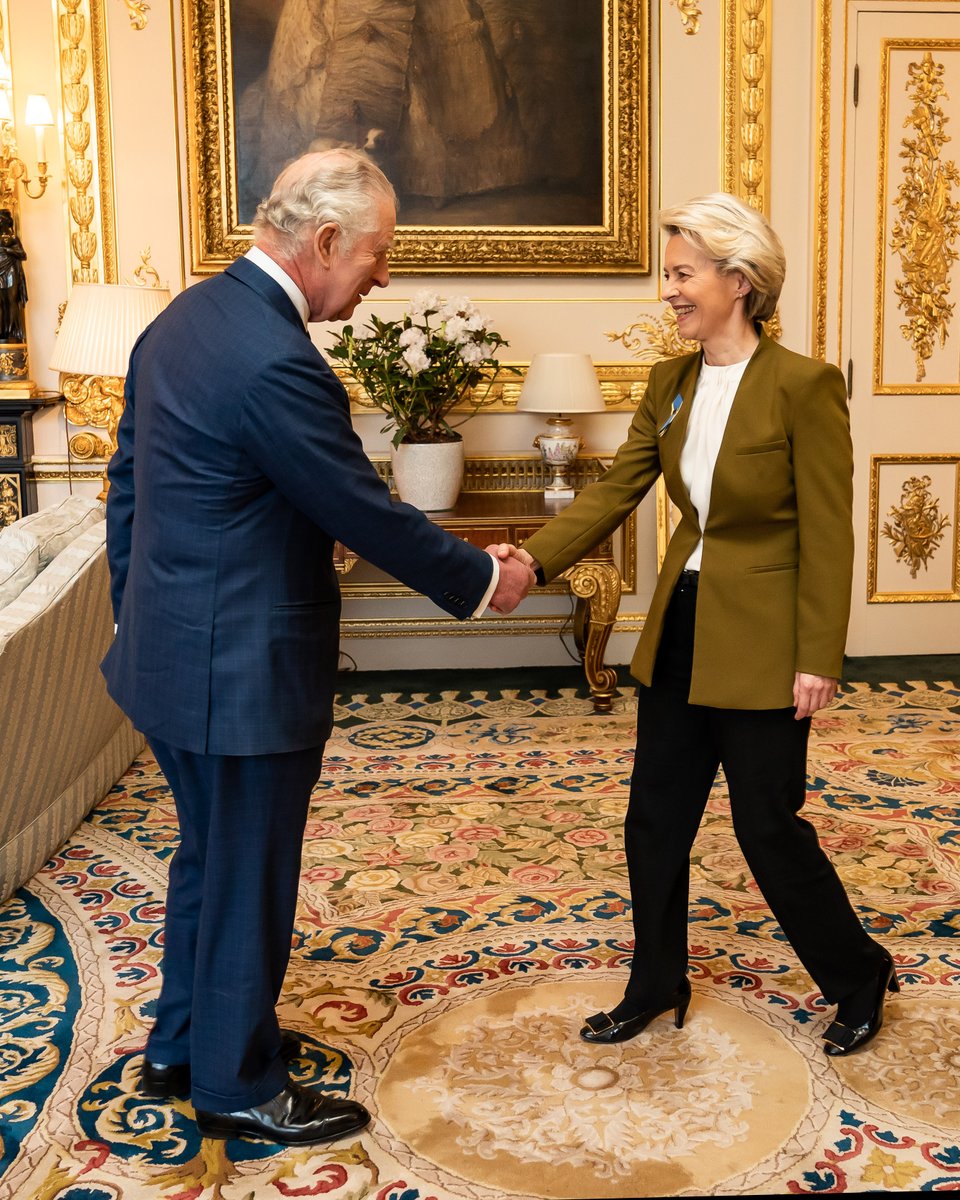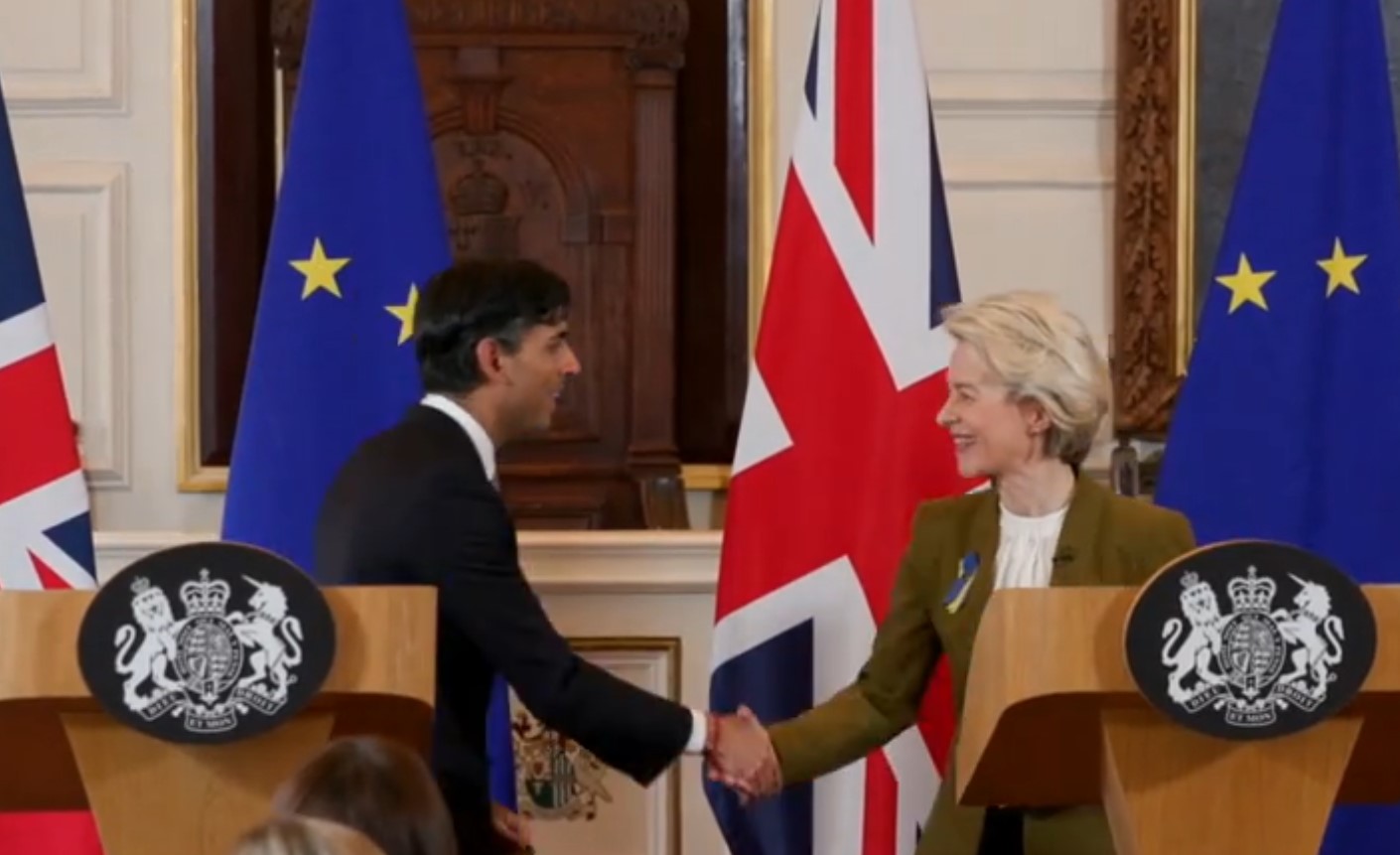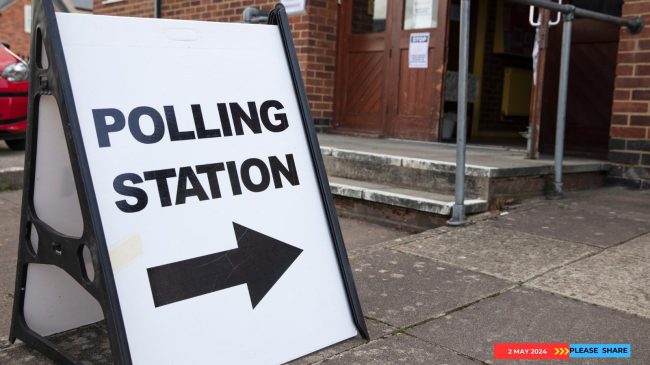Rishi Sunak & Ursula von der Leyen New Brexit Deal to EU goods rules
The Northern Ireland Protocol has caused immense disruption to the country’s political, economic and social life since it was implemented.
Unionists have felt that their identity, aspirations and economic rights under the Belfast (Good Friday) Agreement have been compromised.
The UK Government has taken into account the unique circumstances of Northern Ireland for many years, respecting the Belfast (Good Friday) Agreement in its entirety. This has meant taking steps to avoid a hard border on the island of Ireland, preserving the single epidemiological area, and maintaining North-South cooperation. At the same time, it has been vital to uphold Northern Ireland’s integral place within the United Kingdom and its internal market, in accordance with the principle of consent, in order to protect the lives and livelihoods of those who rely on it.
The UK Government has been striving to find solutions to the complex questions arising from Brexit over the past 18 months, all while safeguarding the Belfast (Good Friday) Agreement. Despite various rounds of talks and periods of progress, a mutually beneficial outcome remained out of reach. However, after months of negotiations and technical discussions, a new path forward has been found. This fresh approach seeks to build on the careful work of 2021 and 2022 and create a framework for a productive future relationship between the UK and EU to tackle global issues.

The Windsor Framework
The Protocol introduces dual regulation which will benefit businesses and consumers in NI, restoring the UK internal market and removing 1,700 pages of EU law. It also ensures smooth trade within the UK, VAT and excise rates apply UK-wide, and medicines licensing is done by the UK regulator. The agreement restores the balance of the Agreement by tackling East-West trade, safeguarding NI’s place in the Union and addressing the democratic deficit.
The agreement provides legally binding solutions to a range of issues in Northern Ireland. Products that were previously prohibited, like seed potatoes, sausages, and British trees can now move freely. Requirements on pet travel have been removed. Garden centres can now move plants and seeds in the same way as the rest of the UK.
VAT on energy-saving materials, such as heat pumps and solar panels, will be reduced. Alcohol duties across the UK, including draught relief for beer in pubs, will be applied uniformly.
The deal also puts in place a UK-wide regime for the approval and supply of medicines, eliminating the need for the European Medicines Agency.
Most importantly, it marks a definitive break from the legal and political framework of the old Protocol, introducing democratic oversight in line with the Belfast (Good Friday) Agreement and rewriting the core dynamic alignment legal text to ensure democratic oversight and preventing the imposition of new goods rules on Northern Ireland.
A Stormont Brake will be applied to EU goods regulations that could have a major impact on citizens and businesses. This brake works in line with existing cross-community safeguards in Northern Ireland, which follow the principles of the Belfast (Good Friday) Agreement. It would allow the UK Government to veto the EU rule from applying in Northern Ireland, however this veto can only be challenged through independent arbitration, not the ECJ. The new framework will grant privileged access to the entire EU market, while providing democratic consent and control. Furthermore, amendments to the Northern Ireland Act 1998 will ensure constitutional guarantees for the people of Northern Ireland.
The Government has agreed to preserve the long-standing commitment to ensure businesses in Northern Ireland have access to the Great Britain market, as well as their privileged access to the EU market. This requires increased market surveillance North-South to protect against potential abuse of these arrangements and the movement of sensitive products such as food illegally across the international border. The Government has also recognised the need for stronger protections for the UK internal market, using the Office for the Internal Market and sharing trade data to monitor regulatory changes.
The complete Windsor Framework documents can be found clicking here










